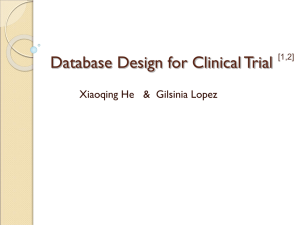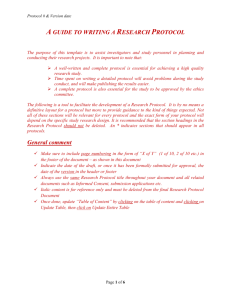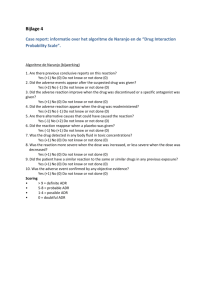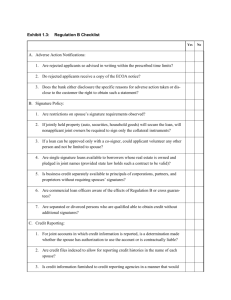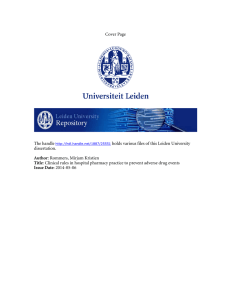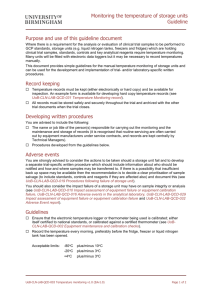Essential experience, skills and qualities
advertisement
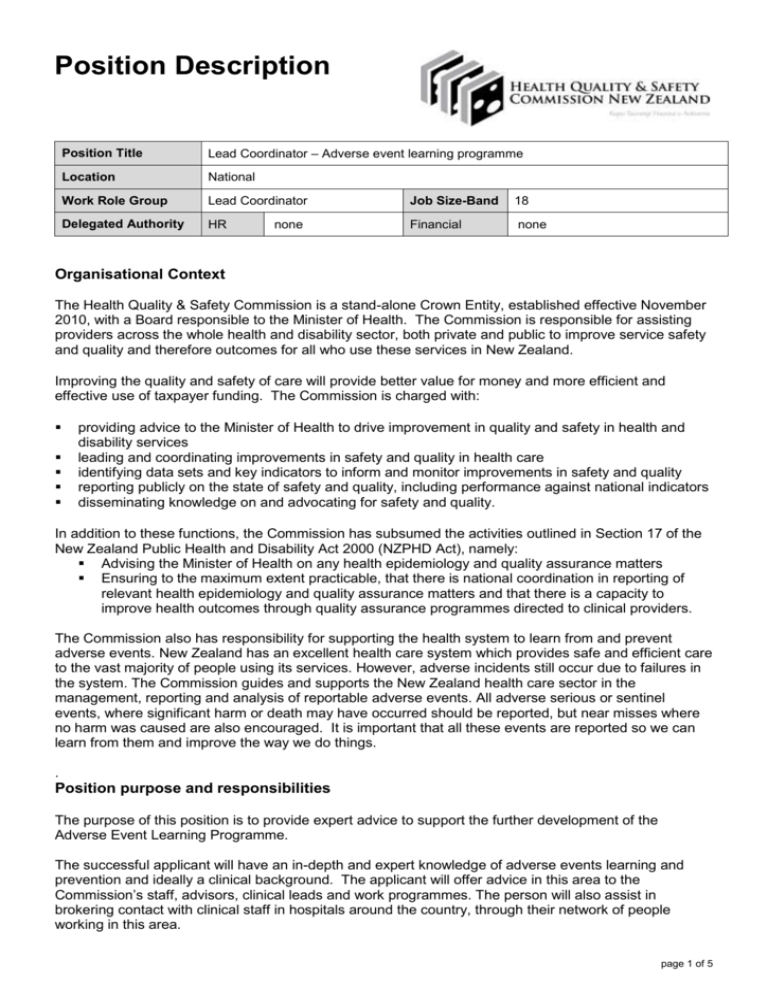
Position Description Position Title Lead Coordinator – Adverse event learning programme Location National Work Role Group Lead Coordinator Job Size-Band 18 Delegated Authority HR Financial none none Organisational Context The Health Quality & Safety Commission is a stand-alone Crown Entity, established effective November 2010, with a Board responsible to the Minister of Health. The Commission is responsible for assisting providers across the whole health and disability sector, both private and public to improve service safety and quality and therefore outcomes for all who use these services in New Zealand. Improving the quality and safety of care will provide better value for money and more efficient and effective use of taxpayer funding. The Commission is charged with: providing advice to the Minister of Health to drive improvement in quality and safety in health and disability services leading and coordinating improvements in safety and quality in health care identifying data sets and key indicators to inform and monitor improvements in safety and quality reporting publicly on the state of safety and quality, including performance against national indicators disseminating knowledge on and advocating for safety and quality. In addition to these functions, the Commission has subsumed the activities outlined in Section 17 of the New Zealand Public Health and Disability Act 2000 (NZPHD Act), namely: Advising the Minister of Health on any health epidemiology and quality assurance matters Ensuring to the maximum extent practicable, that there is national coordination in reporting of relevant health epidemiology and quality assurance matters and that there is a capacity to improve health outcomes through quality assurance programmes directed to clinical providers. The Commission also has responsibility for supporting the health system to learn from and prevent adverse events. New Zealand has an excellent health care system which provides safe and efficient care to the vast majority of people using its services. However, adverse incidents still occur due to failures in the system. The Commission guides and supports the New Zealand health care sector in the management, reporting and analysis of reportable adverse events. All adverse serious or sentinel events, where significant harm or death may have occurred should be reported, but near misses where no harm was caused are also encouraged. It is important that all these events are reported so we can learn from them and improve the way we do things. . Position purpose and responsibilities The purpose of this position is to provide expert advice to support the further development of the Adverse Event Learning Programme. The successful applicant will have an in-depth and expert knowledge of adverse events learning and prevention and ideally a clinical background. The applicant will offer advice in this area to the Commission’s staff, advisors, clinical leads and work programmes. The person will also assist in brokering contact with clinical staff in hospitals around the country, through their network of people working in this area. page 1 of 5 The successful applicant will use specialist subject matter expertise to guide the design and implementation of the Adverse Event Learning Programme. Specifically, this will involve the following: Developing / strengthening systems and processes to improve the quality of review systems, process and practice Developing / strengthening systems to share the lessons learnt from the review of adverse events Management and improvement of the central events repository and data system Championing the Adverse Events Learning Programme within the Commission and externally Supporting the Trigger Tools (TT) programme Participating in team activities Displaying cultural competency Actively managing risks Key responsibilities and expectations These include but are not limited to: Key Areas Expert Advice Performance Expectations Develop / strengthen systems and processes to improve the quality of review systems, process and practice Develop / strengthen systems to share the lessons learnt from the review of adverse Provide advice and analysis that is based on the best available evidence, taking into account the views of relevant stakeholders Contribute to the preparation and drafting of programme plans, policy documents, reports and ad hoc advice Provide advice that will enable the Commission to respond to requests for information from the Minister’s Office, the public, other agencies and health and disability providers and supporting the response to media issues for this Programme Undertake peer review of documents and material prepared by colleagues to ensure quality, validity, accuracy and consistency Provide advice on research, surveys and investigations that may form the foundation for evidence-based analysis, identifying information gaps in measuring and data quality, together with analysis issues, and make recommendations on how to learn from, and prevent, system failures Liaise with external researchers, analysts and academics as necessary Work with Commission staff to ensure the programme is evaluated to demonstrate impacts, outcomes and learnings that can be applied to future programmes Contribute to the identification and mitigation of programme risks Develop / strengthen systems to help organisations identify adverse events On behalf of the Commission, champion robust review practices across the sector using appropriate tools Be involved in the development and delivery of workshops to support provider organisations to undertake best practice reviews Develop other initiatives (with the team and opportunistically) to educate and facilitate the improvement of review practice Respond to feedback and continuously improve the programme of learning, in collaboration with the wider team Share lessons learnt from the review of adverse events through regular reporting which will include case studies (Open Books) and public reporting (annual serious adverse event report) Production of Open Book case studies on a regular/monthly basis page 2 of 5 events Management and improvement of the central events repository and data system Champion the Adverse Events Learning Programme within the Commission and externally Support and work with the Trigger Tools (TT) programme Relationship management Participate in team Activities Display cultural Competency Actively manage risks (including Health & Safety in Employment Act Production of annual public report on adverse events and other publications as required Undertake speaking engagements and opportunities to represent the Commission and to share lessons learned from adverse event reporting and analysis. Oversee data management systems for continuous improvement Collect, code and store data on adverse events for analysis and reporting Proactively manage the collection and recording of events reporting data in a timely manner Identify data quality and analysis issues, identify information gaps and make recommendations on how to learn from, and prevent system failures Analyse data and information as required, providing useful reports Maintain, further improve and develop the process by which adverse events are reported to the Commission, to ensure they are recorded, collated and analysed appropriately (RL6 system; Excel and paper, as appropriate) Provide internal advice on adverse events learning to the Commission to support other programmes in the delivery of their work plans, and to guide Commission in choice of programmes Provide guidance to sector on questions relating to adverse event reporting Support the review of national reportable events policy, as necessary Implementation of annual programme work plan Represent the Adverse events programme externally as required by the manager and wider team. Promote integration with AE programme relationship management Facilitate integration of trigger tool data with adverse event data to broaden the perspective on harm Assist with using TT data to provide internal advice to the Commission Assist with sharing lessons learnt from TT data across the sector Maintain and strengthen relationships with key Ministry, DHB, HDC ACC and other health provider personnel responsible for provision of events data Maintain and strengthen relationships with agencies that have a responsibility to undertake review for the purposes of system improvement (i.e. DHBs, providers). Advise other team members on opportunities for progressing team work programmes Assist in the development of material for communication with the sector Undertake other tasks as allocated by the management Apply the principles of cultural safety to the projects being managed. Display respect, sensitivity and cultural awareness in interpersonal relationships Acknowledge cultural differences by respecting spiritual beliefs, cultural practices and lifestyle choices Take responsibility for meeting the Commission’s obligations in workplace health and safety Contribute to a healthy and safety working environment and healthy and safe working practices page 3 of 5 Key relationships The Board of the Commission Chief Executive Executive Assistant Board Secretary Manager of Business Systems & CFO General Manager (Operations) (Deputy CE) Director Monitoring & Evaluation Principal Advisor Quality Improvement Director Communications Director Partners in Care Medical Advisor All Commission employees have a responsibility for managing relationships in some or all of the key sectors we work with. In this role, the key relationships to be developed are as follows: Reports to: Manager, MRC and AELP (who reports to the General Manager Internal relationships: Medical advisor (clinical lead of the AELP) Project Manager AELP and other AELP staff Communications team Clinical advisors Portfolio managers Members of the programme teams Mortality Review Committees and their support teams Advisory groups Adverse Events Expert Advisory Group (EAG) EAG Chair Public sector: Ministry of Health - the individual business units SSC and other government departments with related interests Other key stakeholders Health and disability sector: Accident Compensation Corporation, Health & Disability Commission DHBs, NGOs, PHOs, private health sector, etc. page 4 of 5 Key Selection Criteria To be considered for this role, the ideal person will need to demonstrate: Essential experience, skills and qualities direct experience of management of adverse events in the health system experience and expertise with Root Cause Analysis and other methods of adverse event review highly developed written and oral communication skills including the ability to communicate clearly and succinctly in a variety of communication settings and styles a tertiary or other relevant qualification preferably in health, social science, or a related discipline and ideally a Masters degree or similar substantial experience using a range of analytical frameworks critical thinking and sound judgement, in particular, the ability to analyse information, develop options and think strategically proven ability to establish and develop effective networking, interpersonal and relationship management skills. Desirable experience, skills and qualities quantitative and qualitative skills applied to policy analysis, research or quality improvement an understanding and appreciation of effective risk management and quality improvement strategies an understanding of the health care delivery system in NZ including health and treatment terminologies established networks across the health and disability sector in NZ. page 5 of 5
